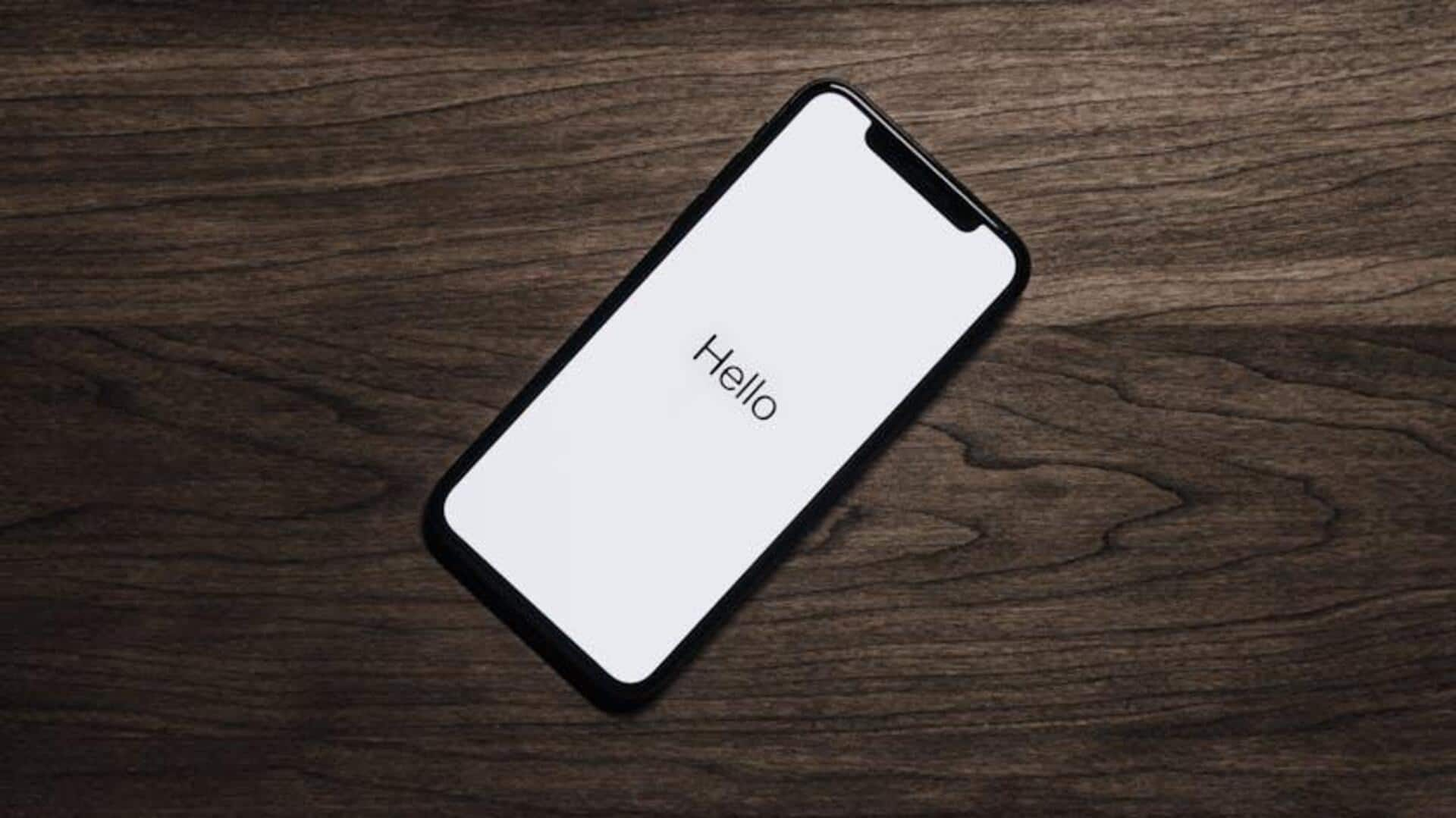
How to encrypt your smartphone
What's the story
Encrypting your smartphone is the most important step to keep your personal data away from prying eyes. With more and more focus on privacy, making sure your device is secure has become a priority like never before. Encryption converts your data into an unreadable code, which can only be accessed with the right key or password. Here are some practical steps to encrypt your smartphone.
Built-in encryption
Enable built-in encryption features
Most modern-day smartphones come with built-in encryption features that can be easily activated. For Android devices, you'd be able to find this option under the security settings. iPhones have encryption enabled by default when you set up a passcode. Enabling these features ensures that all data stored on the device is encrypted, making it inaccessible without the correct credentials.
Passwords and biometrics
Use strong passwords and biometrics
A strong password or biometric authentication makes your encrypted smartphone more secure. Don't go for simple passwords like "one two three four" or "password." Instead, use complex combinations of letters, numbers, and symbols. Also, enable fingerprint or facial recognition if your device supports it to avoid unauthorized access even if someone has your password.
System updates
Regularly update your operating system
Keeping your smartphone's OS up-to-date is crucial for its security integrity. It is also essential to ensure that manufacturers patch vulnerabilities that can be exploited by hackers. So, make sure automatic updates are on so that you get the latest security patches as soon as they are released. Regular updates keep encryption protocols strong and effective from new threats.
Data backup
Backup data securely before encrypting
Before you go ahead and encrypt your smartphone, it's important to securely back up all the important data. Use cloud services with end-to-end encryption or transfer files to an external storage device (that supports encryption as well). This way, even if something goes wrong during encryption, you won't lose valuable information permanently.
Third-party apps
Consider third-party encryption apps
For users looking for more protection than built-in options, third-party encryption apps can provide advanced features such as encrypted messaging and file storage solutions. Search for reputable apps with good reviews before installation to ensure they maintain high-security standards without compromising your privacy by asking for unnecessary permissions or following shady data collection practices.